This post looks at a set of very useful British genealogy records; taxation. I’ve included links to some of the best online sources of these records, both free and paid for.
People have had to pay taxes of one kind or another since the dawn of civilization. The Church and Crown always needed money to pay for their expensive operations and to wage wars on neighbouring countries. Later, money was also needed to pay for infrastructure and services.
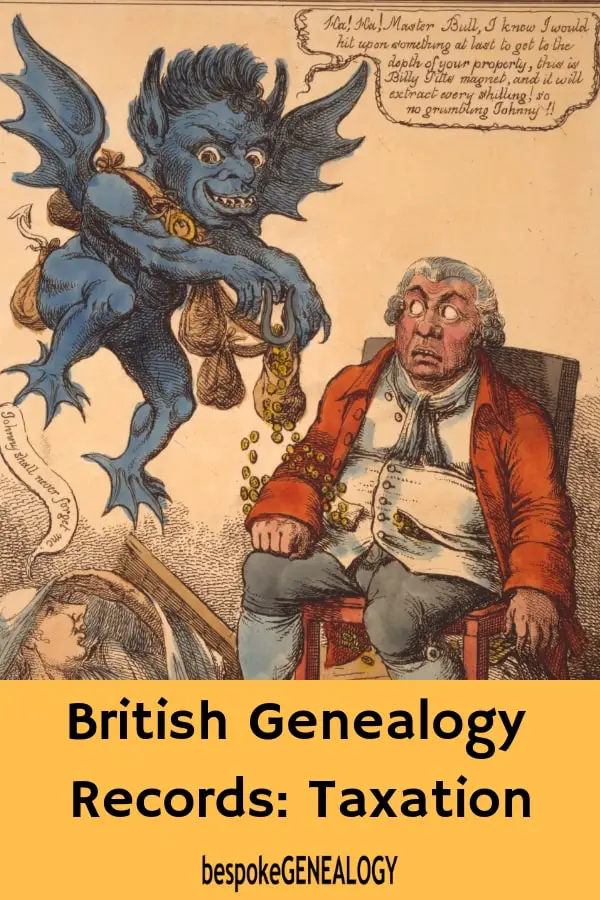
The constant burden on the citizen to pay his taxes is illustrated by the early 19th century cartoon above. It shows the Government, in the form of a blue demon, using a magnet to extract shillings from good old John Bull.
Many of the tax records available for genealogy research are dated earlier than surviving parish records, so these may be the earliest records you’ll be able to find for your ancestors.
Hearth Tax
The Hearth Tax (often known as the chimney tax) was in force in England and Wales between 1662 and 1689 and used mainly to pay for the Court of Charles II after the Restoration. This was a property tax with payment based on the number of hearths in a building. Initially, everyone was liable, but later exemptions were made for those too poor to be able to pay.
Surviving records are held by the National Archives in London in their collection E179. A guide to this collection can be found here. Most of these records date from 1662-1666 and 1669-1674 and the originals can only be viewed at the archives.
The Centre for Hearth Tax Research based at Roehampton University did have a website called Hearth Tax Online which had some transcriptions of records, but this site no longer seems to be connected to the Centre and sadly the transcriptions have gone.
However, some transcriptions are online elsewhere. The Middlesex and London records can be accessed at British History Online. I would recommend keeping an eye on the Roehampton website to see if other transcripts come online. They also produce a blog with occasional posts here.
Some English Hearth Tax records are also available at Findmypast and Ancestry (see below).
Tithe Records
Tithes were originally a tax on land paid annually to support the local church and clergy. They were paid in kind so one tenth of agricultural goods went to the church. Over the years, much of this land passed from the church to lay owners who then received the tithes. By the early 1800s, this form of tax had become very unpopular, so in 1836 the Government passed the Tithe Commutation Act which required tithes to be paid in cash instead of goods. This was known as Tithe Rentcharge.
The survey which resulted from the Act meant that tithe maps and the accompanying apportionment records were produced. For England, these records can be accessed at the subscription site The Genealogist.
Welsh records can be accessed free of charge at the National Library of Wales “Places of Wales” page.
For more information about these records see: Find Your English & Welsh Rural Ancestors with Tithe Maps.
Findmypast
The subscription site Findmypast has a few collections of tax and rate records as follows:
- Cheshire Land Tax Assessments 1779-1832
- City Of York Hearth & Window Tax 1665-1778
- Devon Land Tax and Valuation Records
- Land Tax Billinghurst, Sussex 1780-1832
- Norfolk Land Tax Assessments 1665-1837 Browse
- Northamptonshire Hearth Tax, 1674
- Devon, Plymouth Plague Rate 1626-1629
- Manchester Rate Books 1706-1900
- Plymouth & West Devon Rate Books 1598- 1933
- Southwark Rate Books 1821-1831
- Westminster Rate Books 1634-1900
Click on the links to see more information and to access the records, most of which are searchable.
Ancestry
Another major subscription site with tax records is Ancestry. They have several interesting tax collections, mostly covering land tax, rates, hearth taxes, valuations and death duties. See the list of the collections here.
Scotland’s People
The pay per view site Scotland’s People owned by the National Records of Scotland has the very useful Valuation Rolls collection which list owners and occupiers of buildings in Scotland from 1855.
The Glasgow Story
Valuation rolls for Glasgow between 1913 and 1914 can also be found on the free site The Glasgow Story. These records can only be searched by street or area, not by name.
Happy researching!
Please pin a pin to Pinterest:

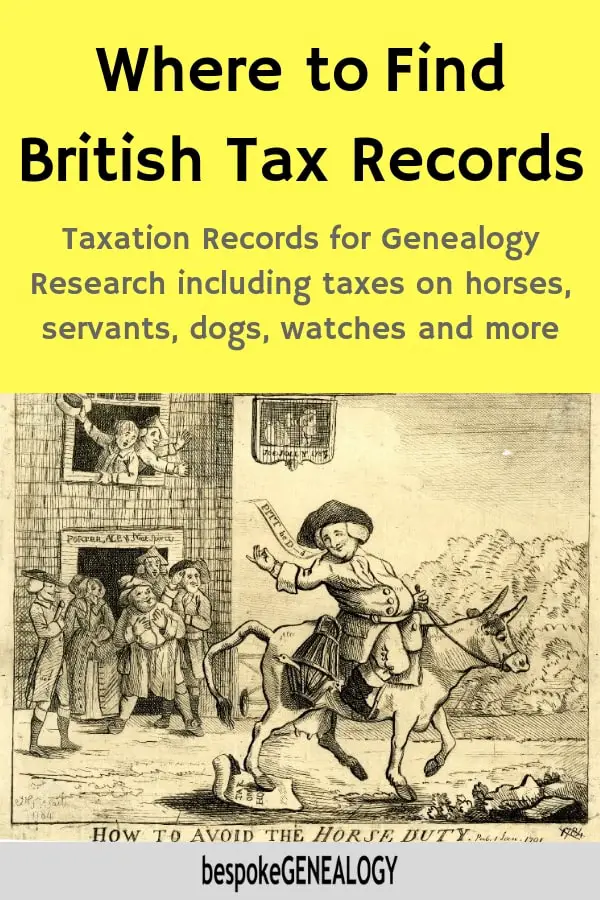
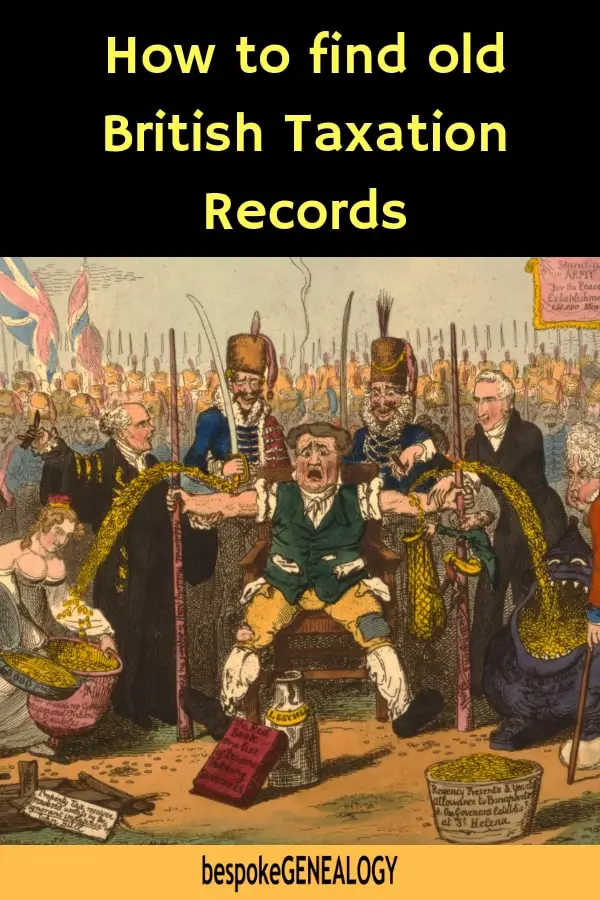
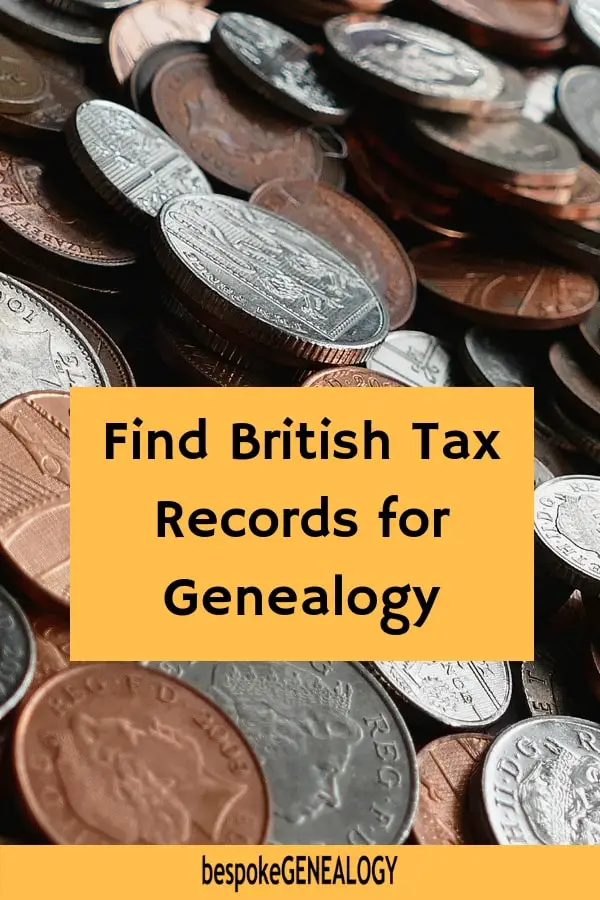
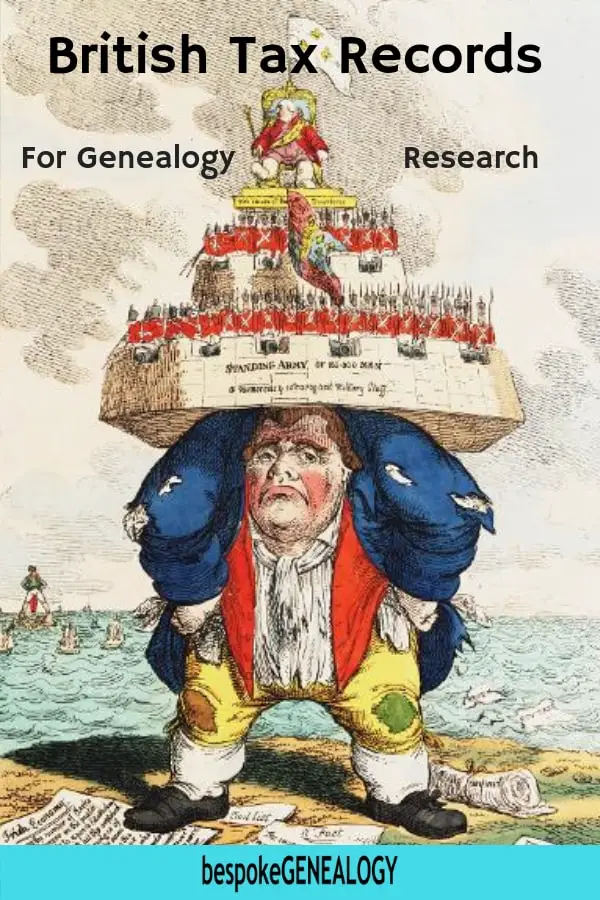
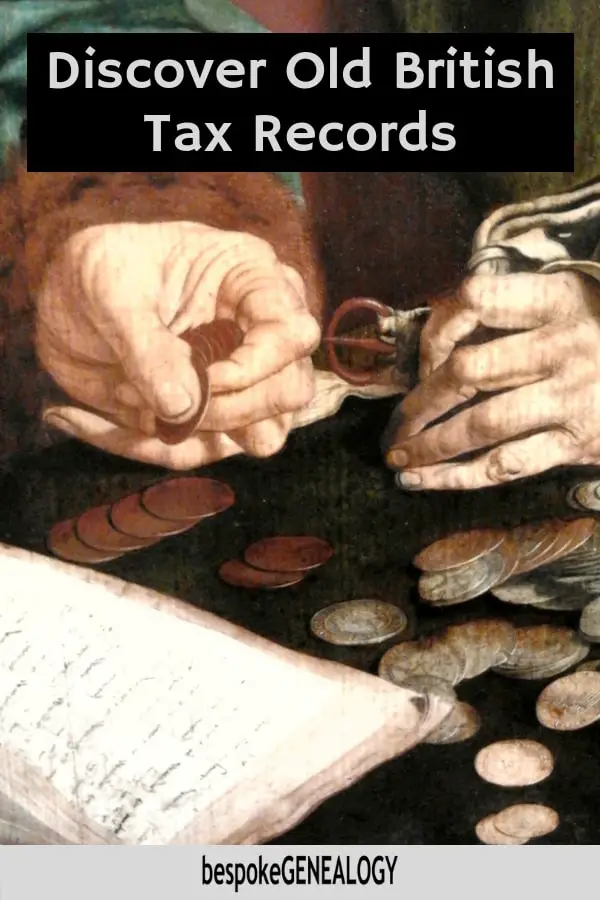
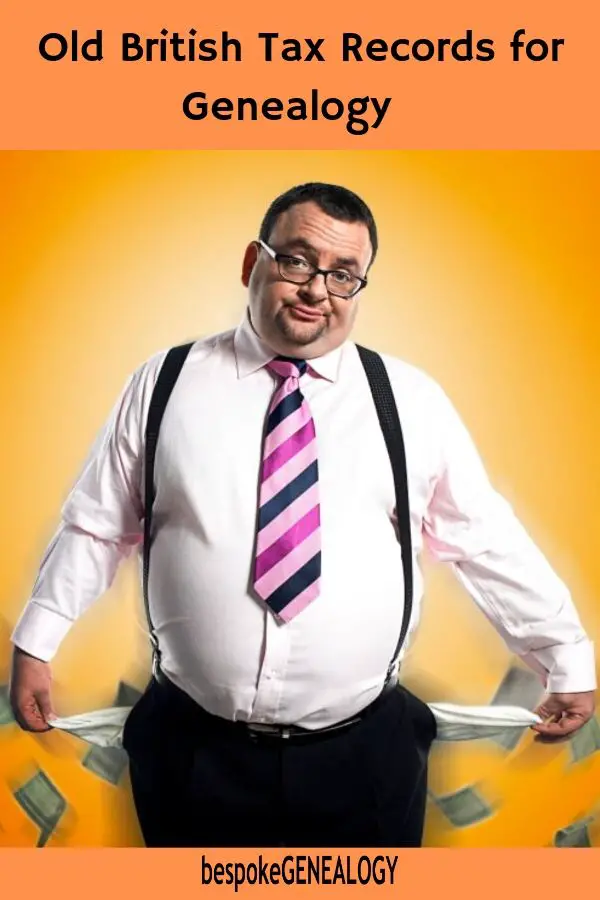
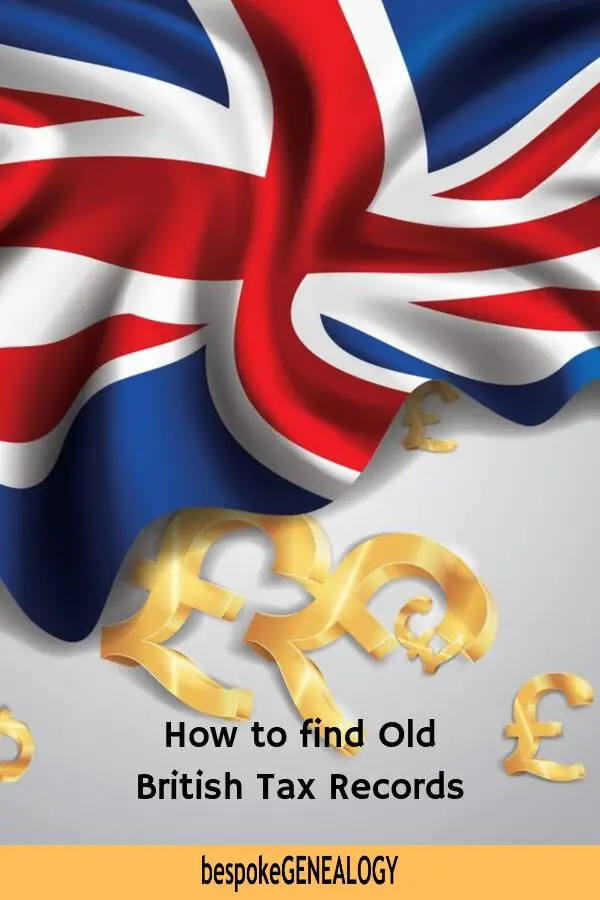
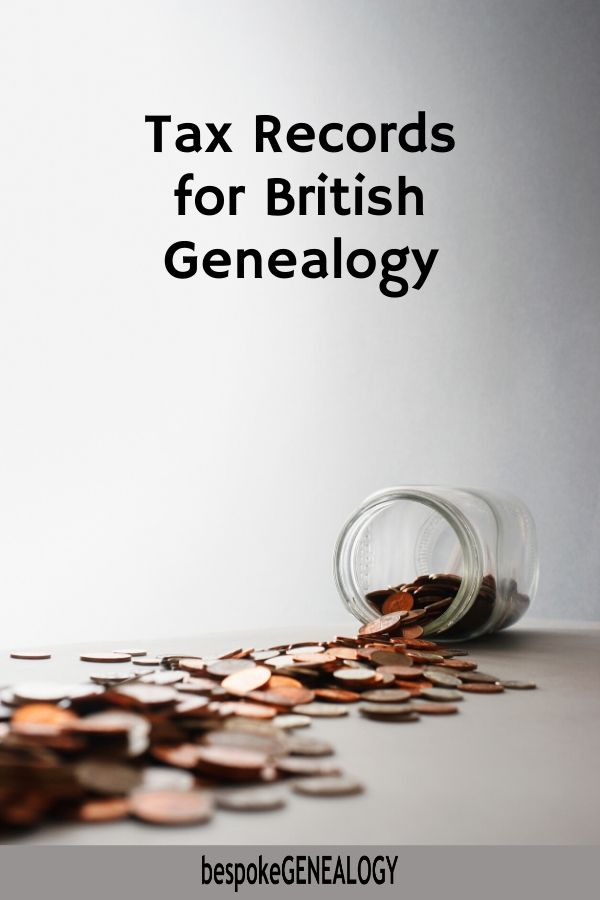
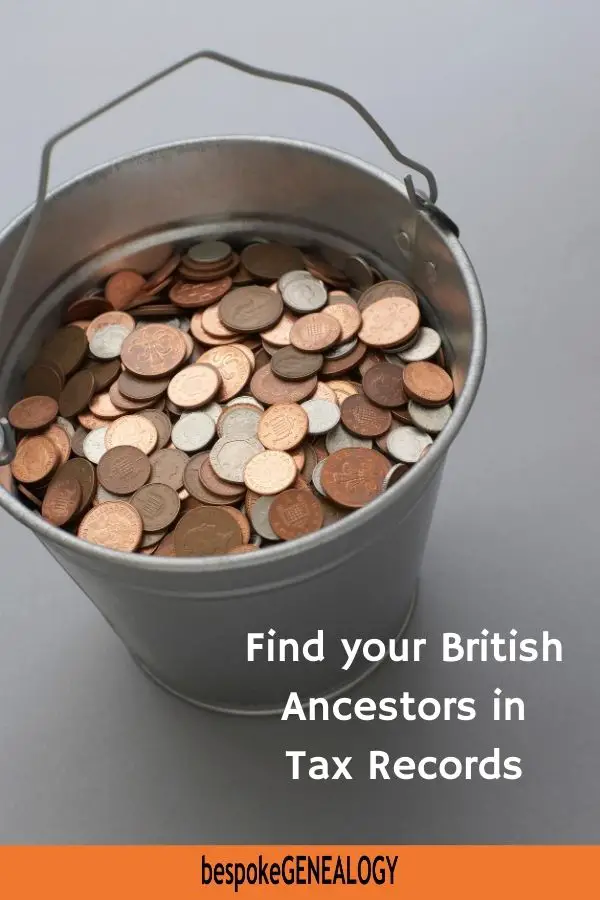
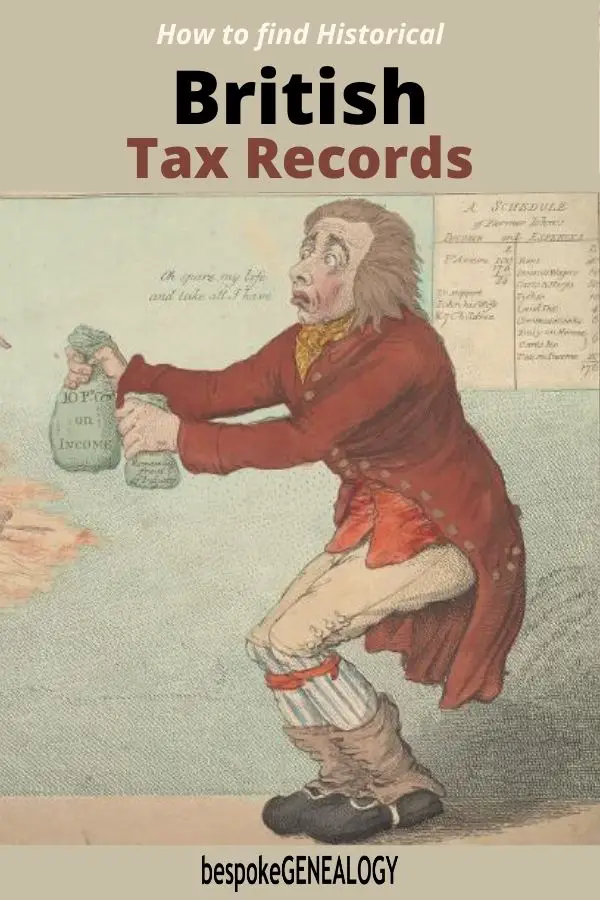
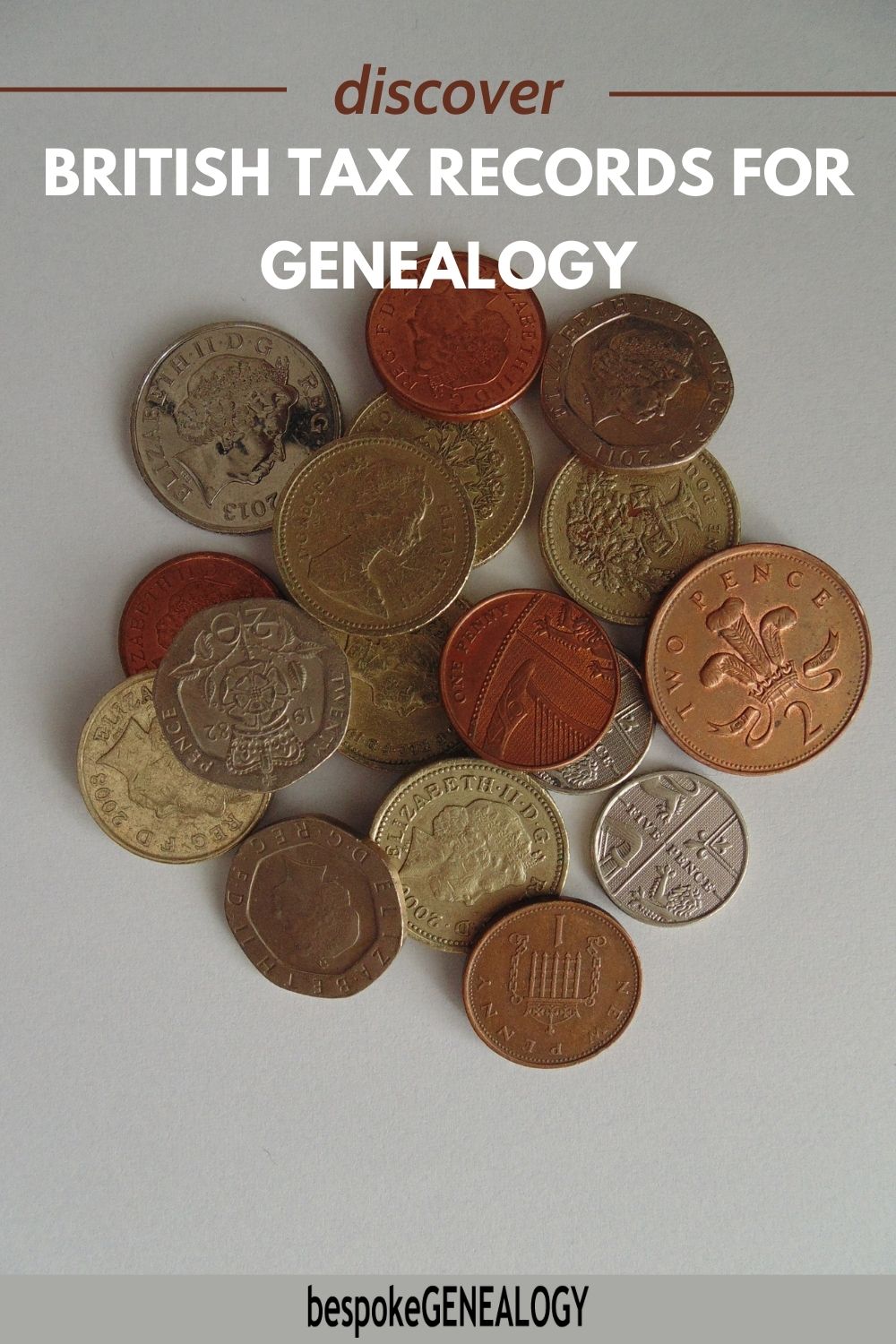

Leave A Comment